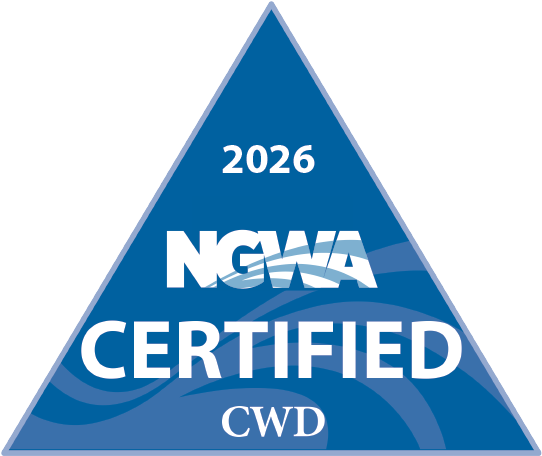Old Water Well: Expert Guide to Identification, Safety & Professional Decommissioning
As a trusted provider of water well services in New Hampshire and Vermont, Wragg Brothers Well Drilling has encountered countless abandoned water wells throughout our decades of service. Our expert team understands that these forgotten structures can pose potential safety hazards to your property, family, and local groundwater supply. This comprehensive guide shares our industry knowledge to help you identify, understand, and properly address old water wells on your property.
Understanding Abandoned Water Wells: What Every Property Owner Should Know
Old water wells or abandoned water wells are previously used structures that have fallen into disuse when homeowners switch to municipal water, drill new wells, or when existing wells fail. With approximately 90% of rural New England properties relying on private wells for their water needs, these unused water wells are remarkably common, especially on older properties.
Many water wells constructed before 1984 lack proper documentation or registration with state agencies, creating a hidden hazard that many property owners don’t even realize exists on their site. Without a documented record confirming that a well has been properly sealed and decommissioned, homeowners may be uncertain about the safety and compliance of the well site. At Wragg Brothers, we consider these old wells to be “open doorways” to your groundwater system—unprotected access points that require professional attention.
Types of Old Wells Found on Properties
Our team regularly encounters several types of wells during our inspection and decommissioning work:
- Dug wells: Hand-excavated wells, typically shallow (under 30 feet) and lined with stone or brick
- Drilled wells: Mechanically created deep wells that can extend hundreds of feet into the aquifer
- Driven wells: Small diameter pipes driven into shallow water-bearing ground layers
A detailed description of each well's construction, geologic materials, and subsurface conditions is essential for proper decommissioning and to ensure compliance with state regulations.
Each type presents unique challenges for proper decommissioning and requires specific materials and techniques to ensure permanent sealing.
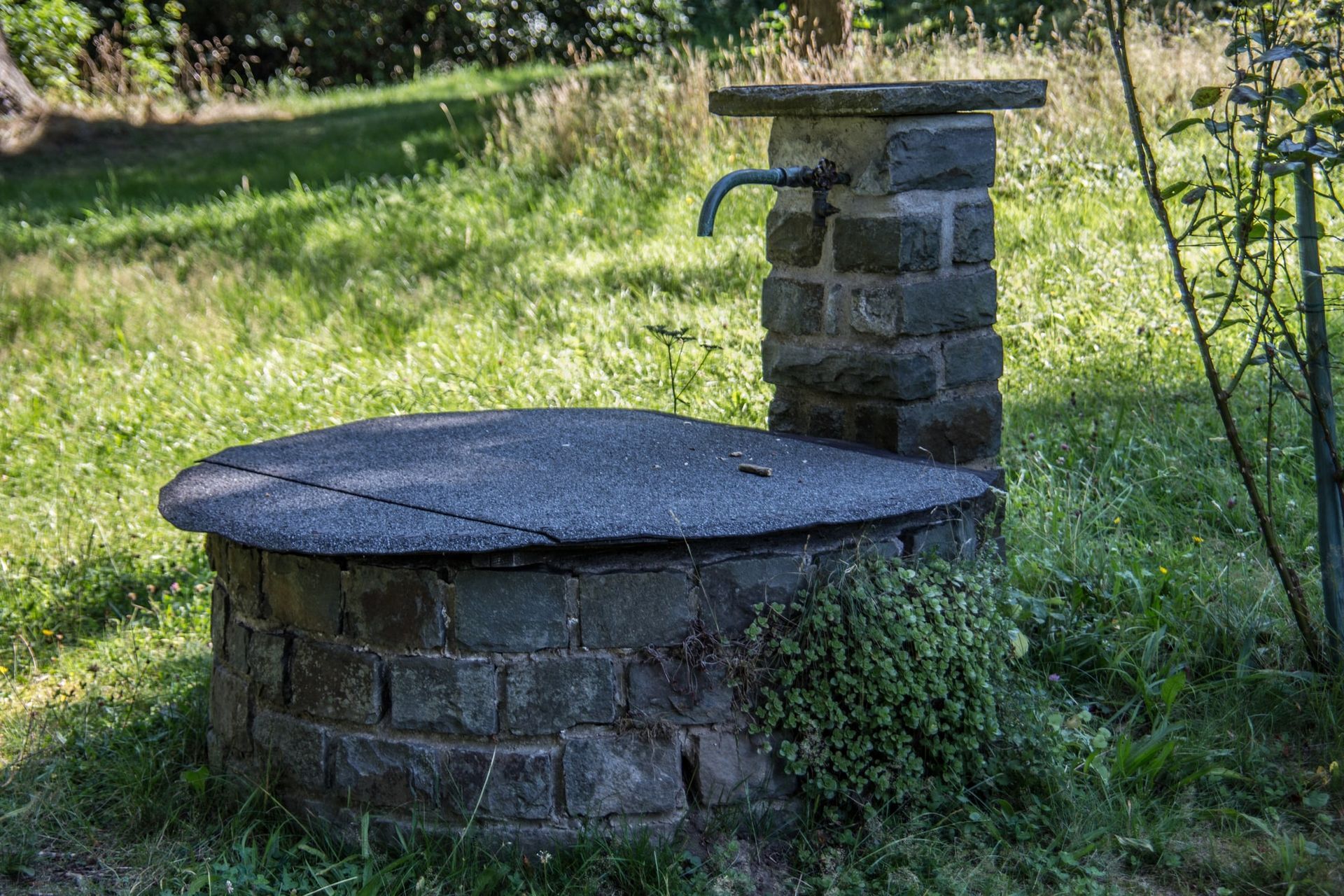
The Hidden Dangers: Why Abandoned Wells Demand Immediate Attention
Neglected old water wells create several serious concerns that our team regularly addresses throughout the area. These forgotten wells pose potential safety hazards that extend far beyond simple property maintenance issues.
Physical Safety Hazards
Uncovered or poorly sealed wells create immediate dangers for people and animals. Over the years, we’ve seen countless cases where children, pets, and wildlife have been injured or killed by falling into abandoned wells. Metal plates covering old wells can corrode and fail, while wooden covers may rot away completely, leaving dangerous openings hidden beneath vegetation in your yard.
Groundwater Contamination Risks
Deteriorated casings in old wells allow surface pollutants to directly enter the aquifer that supplies your current water well. This contamination pathway can introduce:
- Bacteria and pathogens from surface runoff
- Agricultural chemicals and fertilizers
- Petroleum products and household chemicals
- Salt from winter road treatments
- Industrial contaminants
The presence of an unsealed old well essentially creates a direct pipeline for contaminants to reach the groundwater that operating wells in the area continue to rely on for quality water.
Legal and Financial Liability
Property owners may face significant financial responsibility if abandoned wells contaminate neighboring properties. State regulations continue to evolve, and decommissioning code requirements have become increasingly strict. Failure to properly address old wells can result in:
- Substantial fines from environmental agencies
- Liability for contamination cleanup costs
- Reduced property values during home sales
- Insurance complications if accidents occur
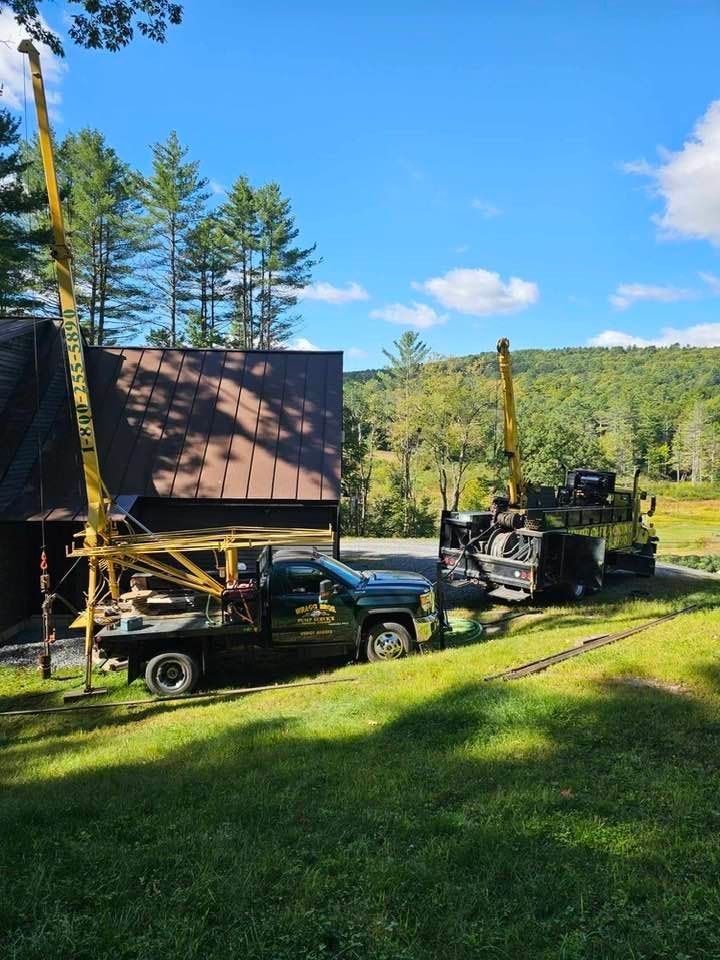
Professional Well Location Services: Finding What Can’t Be Seen
With our specialized equipment and decades of experience, Wragg Brothers excels at helping homeowners locate undocumented wells that others might miss. Our comprehensive location process ensures we identify all wells on your property, even those that have been forgotten for years.
Visual Inspection Techniques
Our professional team knows exactly what to look for when searching for old wells on your property:
- Stone covers, concrete rings, or metal plates partially buried in the ground
- Unusual vegetation patterns that may indicate underground structures
- Ground depressions or circular areas where settling has occurred
- Abandoned pump houses, windmills, or water pumps
- Old water lines leading away from the house or outbuildings
Advanced Technology Solutions
When visual inspection isn’t sufficient, we employ ground-penetrating radar technology to locate wells that are completely hidden. This non-invasive approach can identify subsurface anomalies without disturbing your landscaping or requiring extensive excavation.
Historical Research and Documentation
Our team reviews available property records, historical surveys, and water utility history to piece together the complete picture of wells that may have been drilled on your site. This research often reveals wells that current property owners never knew existed.
Navigating Complex Regulations: Our Compliance Expertise
The regulatory landscape for abandoned wells can be challenging to navigate without professional guidance. As industry leaders, we stay current with all state and local requirements to ensure your property remains compliant.
New Hampshire Requirements
The state requires wells to be registered through the Water Well Inventory Program. Property owners must file documentation when wells are decommissioned, and specific materials and procedures must be followed. After a well has been properly sealed, a report must be submitted to the appropriate state agency, such as the Water Well Board, to ensure compliance with legal requirements. Our licensed contractor team handles all necessary paperwork and submissions.
Vermont Compliance Standards
Vermont has established strict guidelines for well abandonment that require professional oversight. The state mandates that decommissioned wells be properly sealed to prevent contamination of groundwater resources.
Documentation and Reporting
Proper decommissioning requires detailed documentation that becomes part of the permanent record for your property. It is important to document the decommissioning process according to state requirements to ensure regulatory compliance. This information protects future property owners and ensures compliance with evolving regulations.
Having a documented record of well decommissioning is essential for demonstrating compliance and providing assurance to future property owners.
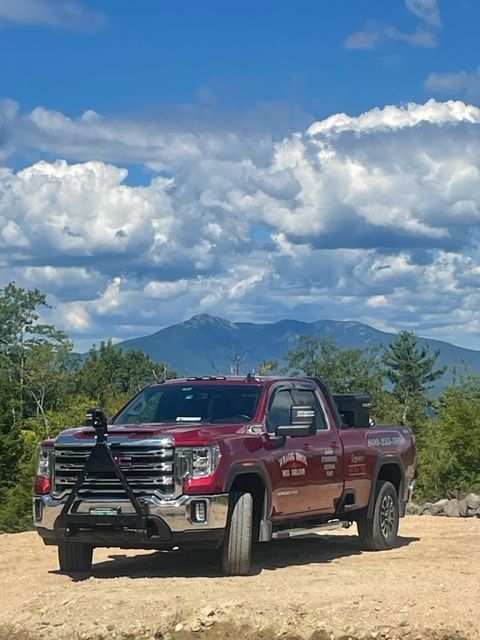
The Wragg Brothers Professional Decommissioning Process
Proper well abandonment is not a DIY project—it requires professional expertise and specialized equipment. Our comprehensive decommissioning service follows established industry standards and exceeds state requirements.
Complete Equipment Removal
We begin by removing all pumps, pipes, and equipment from the old well. This includes any electrical components, water pumps, and distribution systems that may have been connected to the well over the years.
Professional Sealing Methods
The type of sealing material we use depends on the well’s construction and depth:
- Cement bentonite grout: The gold standard for sealing most wells, providing permanent protection against contamination
- Bentonite clay chips: Used in specific applications where swelling clay provides effective sealing
- Layered sealing approach: For deeper wells, we use alternating layers of sealing materials and gravel to ensure complete protection
Surface Protection and Marking
After sealing the well shaft, we install appropriate surface protection to prevent future excavation damage. This may include permanent markers that identify the location for future reference while ensuring the site remains safe for normal property use.
Complete Documentation
Every decommissioning project includes comprehensive documentation submitted to the appropriate state agencies. This paperwork becomes part of your property’s permanent record and demonstrates compliance with current regulations.
Investment Considerations: Affordable Protection for Your Property
While professional decommissioning costs vary depending on well specifications, this investment is significantly less than potential contamination cleanup expenses or legal liabilities. Our clients appreciate that we offer transparent pricing and can schedule work during optimal seasons when we’re not addressing emergency repair situations.
Factors Affecting Cost
Several factors influence the final cost of decommissioning:
- Well depth and diameter
- Type of well construction (dug, drilled, or driven)
- Access to the well location
- Required sealing materials
- Local permitting and inspection requirements
Long-term Value Protection
Consider decommissioning an investment in your property’s long-term value and safety. Properly addressing old wells before problems develop protects your family, maintains water quality, and ensures compliance with regulations that will only become stricter over time.
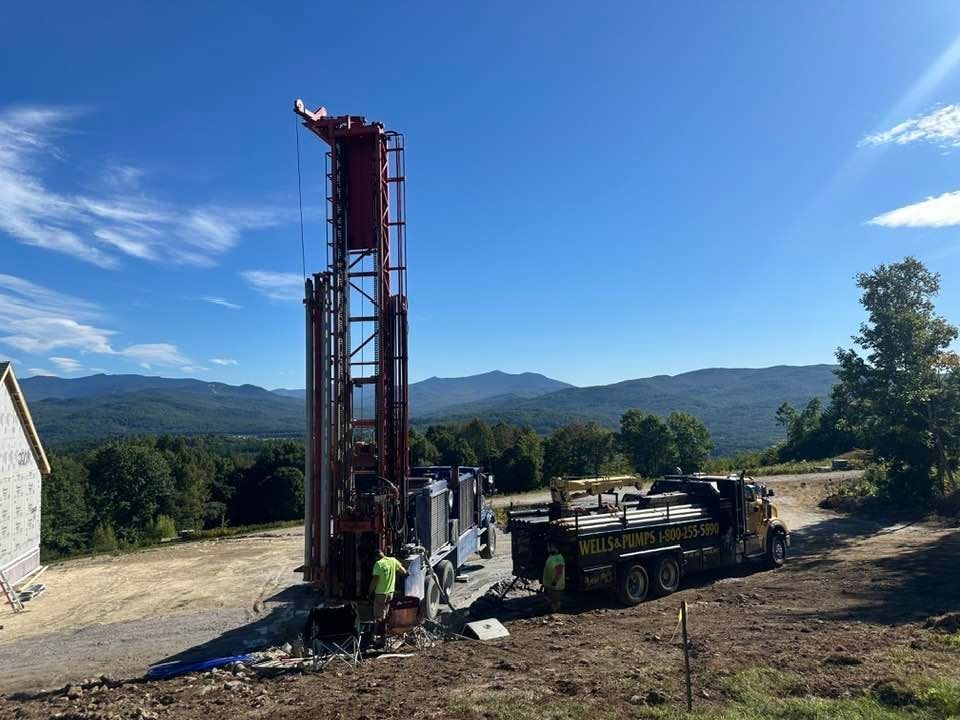
Protect Your Property and Water Supply Today
Don’t let abandoned wells threaten your property value, family safety, or groundwater quality. The presence of old water wells on your property creates ongoing risks that professional decommissioning can eliminate permanently.
Our experienced team at Wragg Brothers Well Drilling has the expertise, equipment, and regulatory knowledge to locate and properly decommission any old well on your property. We understand the unique challenges faced by homeowners in New Hampshire and Vermont, and we’re committed to providing solutions that ensure your water system remains safe and compliant.
Contact Wragg Brothers Well Drilling today for a consultation about our professional well location and decommissioning services. We’ll help you identify any forgotten wells on your property and develop a plan to address them safely and cost-effectively. Visit https://www.wraggbrothers.com to learn more about our complete range of well drilling, pump installation, and water system services throughout New Hampshire and Vermont.
Don’t wait until an emergency forces action—hire our licensed professionals to ensure your property is safe, compliant, and protected for years to come.




